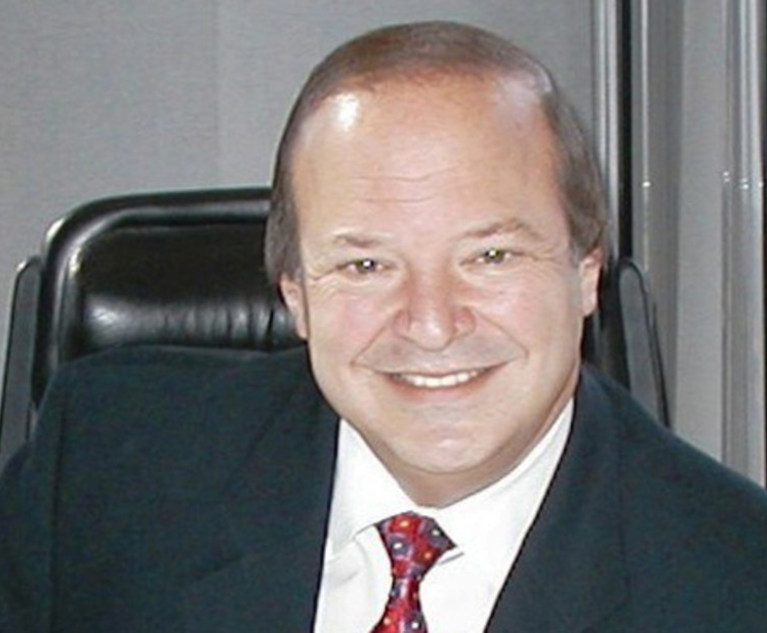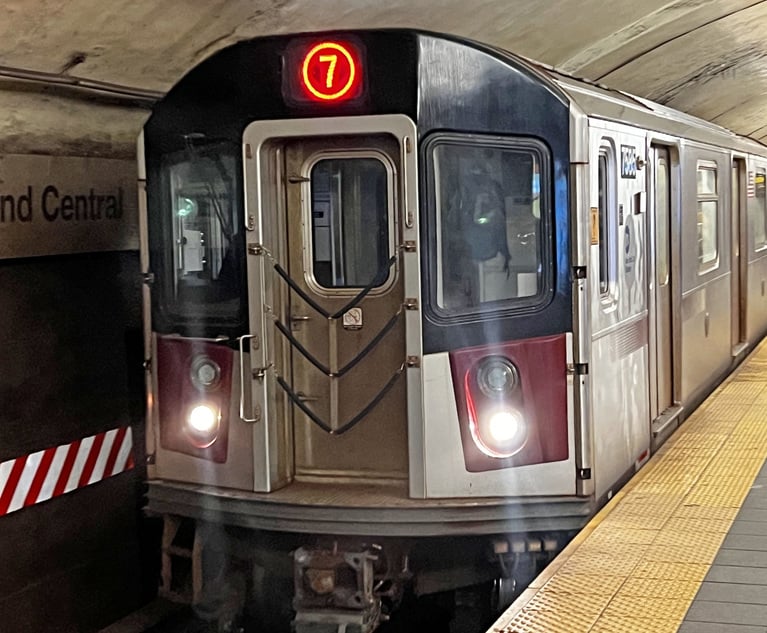 David J. Kaufmann
David J. Kaufmann Massachusetts Says Franchisees May Be Employees
In a potentially quite serious blow to franchising, the Supreme Judicial Court of Massachusetts recently held that Massachusetts' labor laws can be applied to the franchisor-franchisee relationship. Or, put more simply, that franchisees may be employees under Massachusetts law.
April 18, 2022 at 12:20 PM
10 minute read
In a potentially quite serious blow to franchising, on March 24, 2022 the Supreme Judicial Court of Massachusetts (SJC) held in Patel v. 7-Eleven, 489 Mass. 356, 183 N.E.3d 398 (March 24, 2022), that Massachusetts' labor laws can be applied to the franchisor-franchisee relationship. Or, put more simply, that franchisees may be employees under Massachusetts law.
The Patel decision arose from a reference from the U.S. Court of Appeals for the First Circuit, which certified the question to be determined by the SJC as follows: "Whether the three-prong test for independent contractor status set forth in the [Massachusetts independent contractor statute] applies to the relationship between a franchisor and its franchisee, where the franchisor must also comply with the FTC Franchise Rule. [8 F.4th 26 (1st Cir. 2021)]." In the federal lawsuit, 7-Eleven franchisees filed a class action claiming that 7-Eleven misclassified them as independent contractors rather than as employees in violation of the Massachusetts Independent Contractor Law and other labor laws. The U.S. District Court for the District of Massachusetts granted summary judgment to franchisor 7-Eleven (485 F. Supp. 3d 299 (D. Mass. 2020)) and the franchisees appealed. In considering the appeal, the U.S. Court of Appeals noted that the Massachusetts Supreme Judicial Court had yet to analyze the interactions between Massachusetts' Independent Contractor Law (ICL) and the FTC Franchise Rule (which 7-Eleven's suggested to the District Court preempted the ICL), leading the court to "… consider the most prudent approach to be to give the [Supreme Judicial Court] the first opportunity to weigh in on this issue."
This content has been archived. It is available through our partners, LexisNexis® and Bloomberg Law.
To view this content, please continue to their sites.
Not a Lexis Subscriber?
Subscribe Now
Not a Bloomberg Law Subscriber?
Subscribe Now
NOT FOR REPRINT
© 2025 ALM Global, LLC, All Rights Reserved. Request academic re-use from www.copyright.com. All other uses, submit a request to [email protected]. For more information visit Asset & Logo Licensing.
You Might Like
View All
Anti-Abortion Groups' Challenge to New York's 'Boss Bill' Is Returning to Federal Trial Court

Decision of the Day: Administrative Court Finds Prevailing Wage Law Applies to Workers Who Cleaned NYC Subways During Pandemic

Trending Stories
- 1Bill Would Consolidate Antitrust Enforcement Under DOJ
- 2Cornell Tech Expands Law, Technology and Entrepreneurship Masters of Law Program to Part Time Format
- 3Divided Eighth Circuit Sides With GE's Timely Removal of Indemnification Action to Federal Court
- 4Former U.S. Dept. of Education Attorney Suspended for Failure to Complete CLE Credits
- 5ArentFox Schiff Adds Global Complex Litigation Partner in Los Angeles
Who Got The Work
J. Brugh Lower of Gibbons has entered an appearance for industrial equipment supplier Devco Corporation in a pending trademark infringement lawsuit. The suit, accusing the defendant of selling knock-off Graco products, was filed Dec. 18 in New Jersey District Court by Rivkin Radler on behalf of Graco Inc. and Graco Minnesota. The case, assigned to U.S. District Judge Zahid N. Quraishi, is 3:24-cv-11294, Graco Inc. et al v. Devco Corporation.
Who Got The Work
Rebecca Maller-Stein and Kent A. Yalowitz of Arnold & Porter Kaye Scholer have entered their appearances for Hanaco Venture Capital and its executives, Lior Prosor and David Frankel, in a pending securities lawsuit. The action, filed on Dec. 24 in New York Southern District Court by Zell, Aron & Co. on behalf of Goldeneye Advisors, accuses the defendants of negligently and fraudulently managing the plaintiff's $1 million investment. The case, assigned to U.S. District Judge Vernon S. Broderick, is 1:24-cv-09918, Goldeneye Advisors, LLC v. Hanaco Venture Capital, Ltd. et al.
Who Got The Work
Attorneys from A&O Shearman has stepped in as defense counsel for Toronto-Dominion Bank and other defendants in a pending securities class action. The suit, filed Dec. 11 in New York Southern District Court by Bleichmar Fonti & Auld, accuses the defendants of concealing the bank's 'pervasive' deficiencies in regards to its compliance with the Bank Secrecy Act and the quality of its anti-money laundering controls. The case, assigned to U.S. District Judge Arun Subramanian, is 1:24-cv-09445, Gonzalez v. The Toronto-Dominion Bank et al.
Who Got The Work
Crown Castle International, a Pennsylvania company providing shared communications infrastructure, has turned to Luke D. Wolf of Gordon Rees Scully Mansukhani to fend off a pending breach-of-contract lawsuit. The court action, filed Nov. 25 in Michigan Eastern District Court by Hooper Hathaway PC on behalf of The Town Residences LLC, accuses Crown Castle of failing to transfer approximately $30,000 in utility payments from T-Mobile in breach of a roof-top lease and assignment agreement. The case, assigned to U.S. District Judge Susan K. Declercq, is 2:24-cv-13131, The Town Residences LLC v. T-Mobile US, Inc. et al.
Who Got The Work
Wilfred P. Coronato and Daniel M. Schwartz of McCarter & English have stepped in as defense counsel to Electrolux Home Products Inc. in a pending product liability lawsuit. The court action, filed Nov. 26 in New York Eastern District Court by Poulos Lopiccolo PC and Nagel Rice LLP on behalf of David Stern, alleges that the defendant's refrigerators’ drawers and shelving repeatedly break and fall apart within months after purchase. The case, assigned to U.S. District Judge Joan M. Azrack, is 2:24-cv-08204, Stern v. Electrolux Home Products, Inc.
Featured Firms
Law Offices of Gary Martin Hays & Associates, P.C.
(470) 294-1674
Law Offices of Mark E. Salomone
(857) 444-6468
Smith & Hassler
(713) 739-1250







